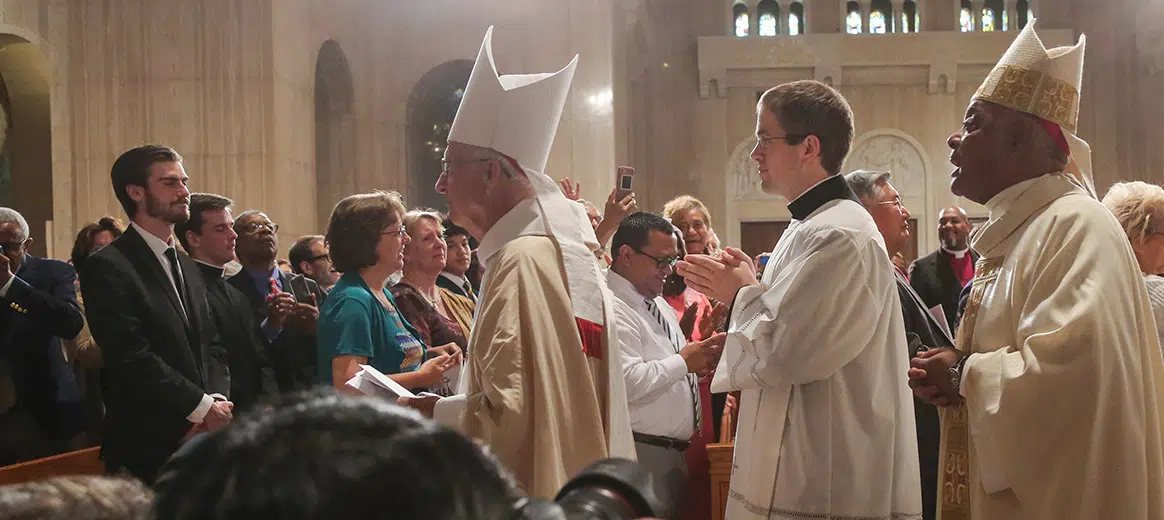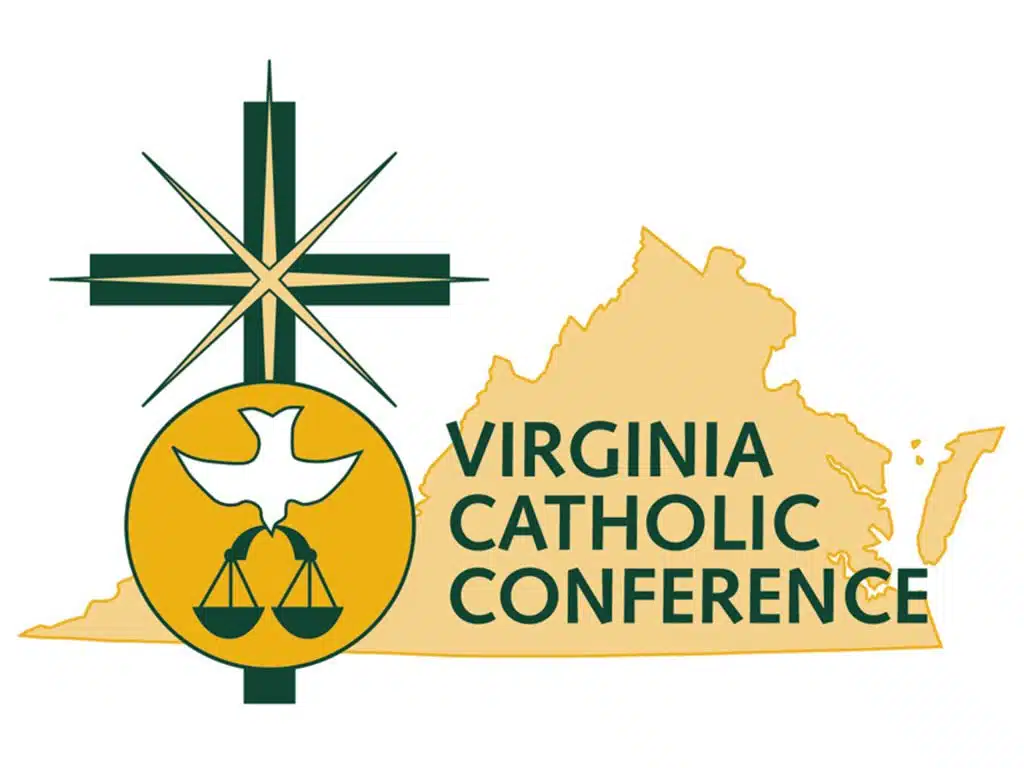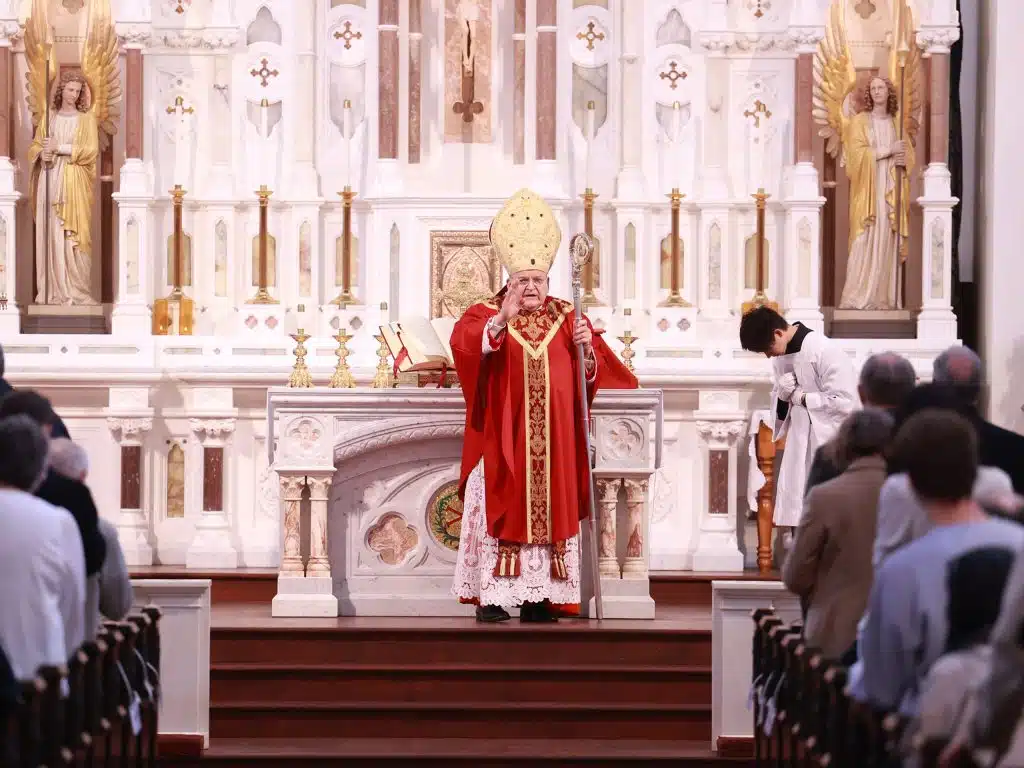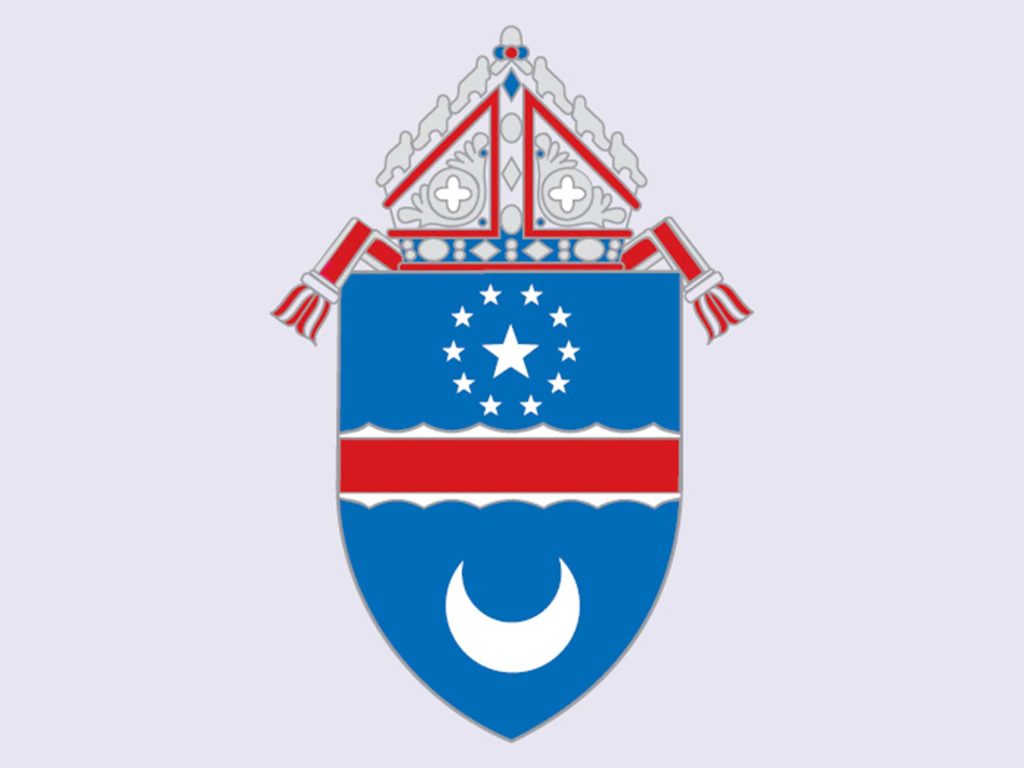HYATTSVILLE, Md. — Archbishop Wilton D. Gregory will have a lot
of things on his plate now that he is the newest leader of the influential
archdiocese situated in the nation’s capital: the sexual abuse roiling the
Catholic Church, the tense political climate on the Hill and the challenges
that come with learning about a new archdiocese.
The archbishop, who was installed as Washington’s seventh archbishop May 21 at the Basilica of the National Shrine of the Immaculate Conception, knows what his first priority
will be however.
The “first and most important thing” is “getting
out in the field and meeting the people,” Archbishop Gregory said in a May
17 interview.
He has six listening sessions scheduled with priests of the
Washington Archdiocese, and “I’m trying to fill up my calendar right now
with moments when I can be in the parishes with the people,” he said. Like
“a Sunday supply priest,” he wants to visit local parishes to say
Mass and afterward stand at the back of church and greet people.
Archbishop Gregory has “no fancy requirements” for such
visits, nor would he expect any “fancy preparation.” He just has
“the real desire to be there as a listener,” he said, adding that
“it is that casual encounter with people that often proves to be the most
fruitful.”
“I’ve discovered the best approach to learning about a
diocese is to listen to the diocese so you don’t go in with all kinds of
preprogrammed intentions that may or may not fit the experience of the people
or their needs,” said the 71-year-old prelate.
When Pope Francis appointed him to Washington April 5, he had
been Atlanta’s archbishop for 14 years. Before that, the Chicago native was
bishop of Belleville, Illinois; he was a Chicago auxiliary bishop when he was
named to head that diocese.
In Washington, he succeeds Cardinal Donald W. Wuerl, who headed
the archdiocese for 12 years until his retirement last October.
In an interview just days before his installation at the Archdiocese Pastoral Center in
Hyattsville, Md., Archbishop Gregory covered a wide range of topics.
He talked about bringing hope and healing to Catholics coping
with the clergy abuse scandal; how his new duties include speaking for the
church “to the powers that be” in the nation’s capital when the times
call for it; the significance of his appointment as the first African American
archbishop to head an archdiocese with “a storied history of African
American Catholics going back to pre-nationhood”; what he’ll miss most
about his former archdiocese; and a few of his side interests, like cooking and
golfing.
Archbishop Gregory said the abuse scandal erupting again in the
church over the last year is “chapter two” of what the church went
through in 2002. He was bishop of Belleville at the time and president of the
U.S. Conference of Catholic Bishops and was involved in the drafting and the
implementation of the bishops’ “Charter for the Protection of Children and
Young People.”
“The dynamic then was the scandal that people were
experiencing and voicing, that clergymen, priests, deacons, church officials
had harmed their children,” he said.
“Chapter two is the revelation that those in leadership too
frequently did not address those issues appropriately and in a very few cases,
some of the leaders themselves were engaged in that behavior,” Archbishop
Gregory said.
There is “anger at the failure of leadership,” he said,
“and from my perspective that’s more problematic, because now you’re
looking at the very authorities that have been asked to guide and govern and
teach and sanctify the church, and they themselves either did not handle those
case well or even worse were a part of that.”
“The two moments are related, but they are distinct,”
Archbishop Gregory said. “It seems to me that the task that lies before me
is to both listen to the people — to hear them, to hear the hurt, acknowledge
it, recognize it, but then also to invite them to reach into their own
spiritual treasuries and to say now we can’t allow our history to determine our
future and to invite them with me to chart a new direction and engage them.”
Archbishop Gregory said he is hopeful the U.S. bishops, when they
meet in June in Baltimore, will build on Pope Francis’ “motu proprio”
issued May 9 giving clear direction to the global Catholic Church about
reporting abuse and holding church leaders accountable.
Last November, during the fail general assembly, the Vatican had
asked the U.S. bishops to postpone a vote on to implementing new protocols to
boost the accountability of bishops to laypeople and survivors of clergy sex
abuse.
In June, the bishops can go forward with those protocols, he
believes, putting “into place structures and procedures that will be a
resolve and a direction for the future. Those procedures also have to include
lay involvement, lay engagement in a similar way to what the charter did in
establishing lay review boards.”
“These steps will go a long way to bringing some
healing” from the abuse crisis, Archbishop Gregory remarked. “But
also I have to stand in the presence of these people of the archdiocese before
God and ask their pardon.”
He added, “There’s a family I am still very close to from
Belleville, and the wife, who knows me well, once said, ‘You know Wilton, when
a married man has made a terrible mistake he can never say, “I’m sorry
enough,”‘ and I think that analogy is also appropriate to this
moment.”
The abuse crisis has “broken the hearts of many of our
priests,” Archbishop Gregory said, “because here they are in the
trenches working hard and doing the best they can, trying to make ‘bricks with
no straw’ and this is then dropped in their laps and that’s hurt them.”
In Washington, he said his listening sessions with the priests of
the archdiocese will “lay the foundation of a relationship that I want to
build” with them.
There will be times “when we’re together to do
business” but also “times when we’re together to pray together, to
relax together, to joke together. A friendship can’t simply be established on
doing business. It has to be established on opening hearts and engaging one
another.”
With regard to him being Washington’s first African American
archbishop, he said he knows that for many African American Catholics, his
appointment “is a great source of pride, and I am honored those feelings
are there.”
“I look forward to encountering the African American
Catholic community as one of their sons who has now become their
shepherd,” he added.
“I’m very much aware the Archdiocese of Washington has a
storied history of African American Catholics going back to pre-nationhood.
There’s a sacred heritage that I hope to both recognize and to honor,” he said.



